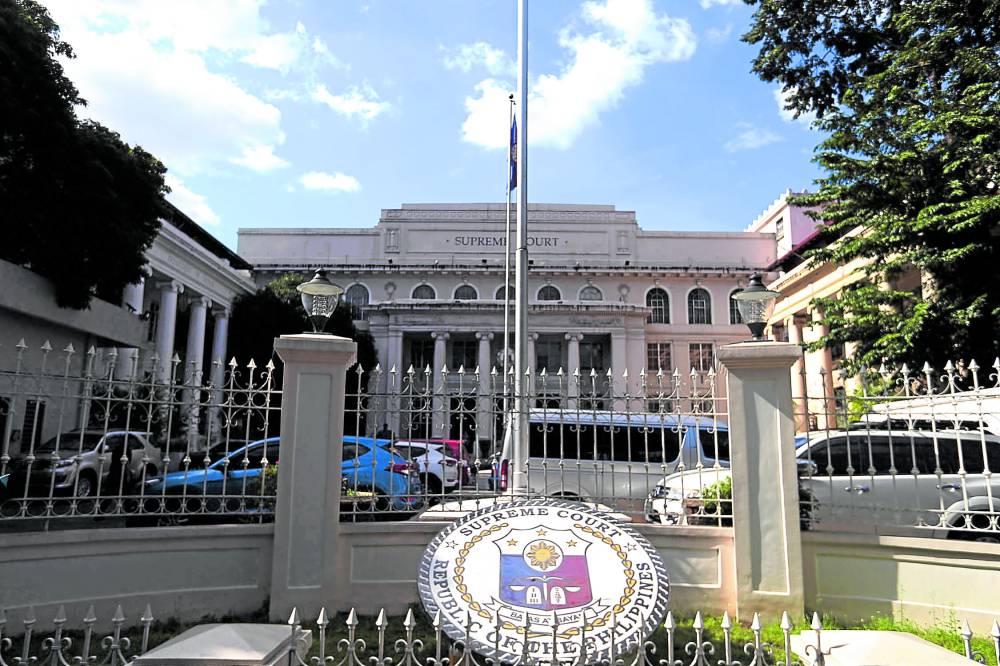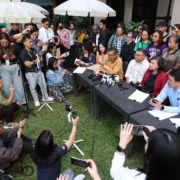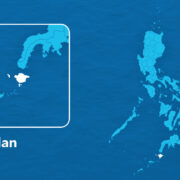SC expands scope of ‘qualified rape of minor’

The Supreme Court has expanded the scope of the crime “qualified rape of a minor” and increased the minimum damages awarded to victims, in a ruling that amended the guidelines on the proper legal terms in rape cases involving children.
The expanded guidelines now cover all 10 special qualifying aggravating circumstances—conditions that increase the penalty for the crime—listed under Article 266-B of the Revised Penal Code, up from the previous three factors.
They also raised the minimum damages for victims to P150,000 each—for civil indemnity, moral damages and exemplary damages—from the previous P75,000.
“This is because of the depravity of rape committed by offenders with perverse or aberrant sexual behavior against the victim who is below the statutory age or is suffering from mental retardation comparable to the intellectual capacity of a child below the statutory age,” the Supreme Court said.
Father-daughter case
The changes were contained in an en banc resolution promulgated in April but made public on Wednesday in the criminal case G.R. No. 260708.
The ruling penned by retired Associate Justice Mario Lopez denied the motion for reconsideration of a man convicted of raping his 8-year-old daughter.
A trial court initially convicted him of qualified rape based on the victim’s minority and their relationship.
The Court of Appeals affirmed the conviction but modified the designation of the crime to “qualified statutory rape.”
The Supreme Court rectified this confusion and incorrect legal term, saying the correct designation should be “qualified rape of a minor.”
Under the Revised Penal Code (RPC), statutory rape is committed when a man has sexual intercourse with a girl below 12, even without force, threat, or intimidation, or with a woman whose intellectual age is below 12.
Republic Act No. 11648 enacted in 2022 raised the age threshold for statutory rape from below 12 to under 16.
Aggravating factors
Meanwhile, qualified rape refers to a sexual intercourse with a woman against her will, committed under any of the circumstances listed in Article 266-B of the RPC, such as abuse of authority, moral ascendancy, relationship, or the victim’s vulnerability—factors that justify a heavier penalty.
While the Supreme Court had consistently used the term qualified rape even when there are elements of statutory rape, it noted that some rulings since 2014 used the improper legal term “qualified statutory rape.”
In its 2024 main decision on the case, the high court already issued guidelines stating that when the elements of both statutory rape and qualified rape are present, the correct designation is “qualified rape of a minor.”
Previously, the Supreme Court only included three aggravating circumstances under this crime: minority and relationship, the victim’s age being below 7 years old, and knowledge of the victim’s mental disability.
In the expanded scope, the special qualifying aggravating circumstances now include the following conditions:
- when the victim is under police, military, law enforcement, or penal custody;
- when the rape is committed in the presence of the victim’s spouse, parent, child, or relatives within the third civil degree;
- when the victim is a known member of a legitimate religious vocation.
- when the offender has HIV/AIDS or another sexually transmissible disease and transmits it to the victim;
- when the crime is committed by a member of the Armed Forces of the military, paramilitary units, police, or other law enforcement or penal agencies who abuses the position;
- when the victim suffers permanent physical mutilation or disability;
- when the offender knows the victim is pregnant.
“For instance, the crime should be denominated as ‘qualified rape of a minor’ in the rape that transpired before the effectivity of Republic Act No. 11648 against an 11-year-old victim committed in full view of the parent or other relatives within the third civil degree of consanguinity,” the Supreme Court explained.
Civil liability
Under the amended guidelines, the Supreme Court said a crime shall be called qualified rape if any of the conditions mentioned in Article 266-B of the RPC is present and the victim is not below the statutory age or is suffering from mental retardation comparable to the intellectual capacity of a child below the statutory age.
The minimum amount of civil liability for this case is P100,000 each for civil indemnity, moral and exemplary damages.
“One of the special qualifying aggravating circumstances mentioned in Article 266-B of the RPC is sufficient to qualify the crime,” the Supreme Court noted.
For statutory rape, the high court clarified that the victim should be below the statutory age—either below 12 or 16 depending on whether the crime of rape was committed before or after the effectivity of RA 11648, respectively.
The guidelines are applicable only to rape through carnal knowledge and not to rape through sexual assault.

















